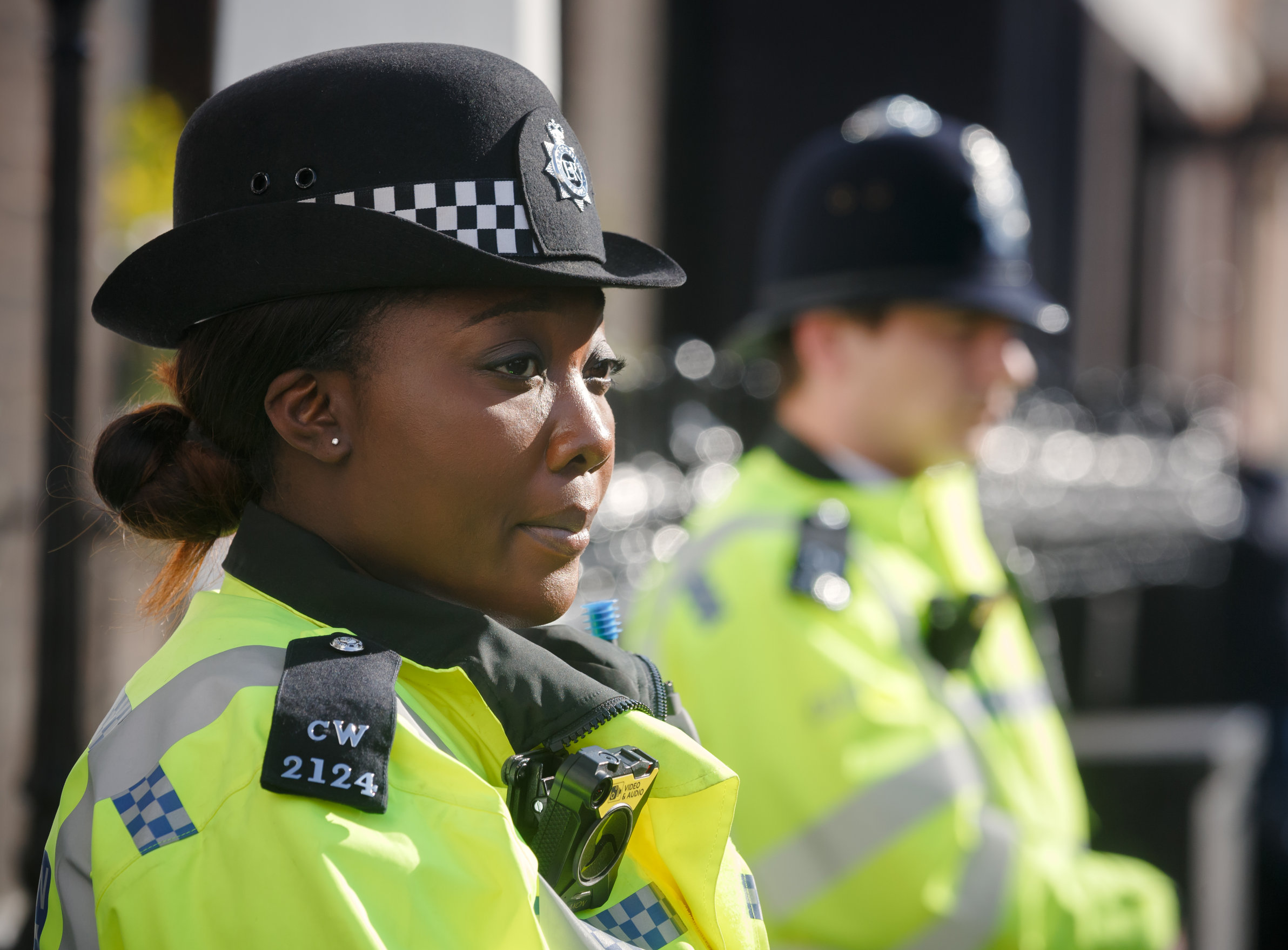Policing Tells All
How the big man at the top hounded him out of his job when he was achieving so much, transforming a deprived inner-city area.
For 23 years David Webb, former police superintendent, has kept secret the true reasons for ending his career in Handsworth, Birmingham at the height of his achievements.
He was the pioneer of community policing and was internationally recognised for his work.
In his new book ‘Policing the Rainbow’ he names current and former black business people and community leaders and the part they played during the turbulent eighties in inner-city Handsworth. James Hunte, Lloyd Blake, Basil Clarke, Beni Brown and Gus Williams are named in his book and the part they played during his reign.
According to David Webb, they tried to silence him by offering him a desk job in administration at the police headquarters, Lloyd House in Birmingham City Centre. “It was then I decided that I would not give them the satisfaction of driving me out. I would do it my way or not at all.”
“I would retire and tell the world why.”
Here is a short extract.
“Handsworth was home to six clubs, each of which were presenting major problems and a flurry of activity; from strip clubs, gambling, and blues clubs, along with the buying and selling of illicit narcotics. Along with this came the underlying crime of territorial disputes, which laid the groundwork for more serious crimes to emerge.
Meanwhile, the Great British public, driving in and out of Birmingham each day and night down Soho Road which links Birmingham city with the west, could see it all. Men and women were hanging about in groups, spilling out of the clubs, fighting and milling about, rather similar to our towns and cities now, except that today it is the white races that are notorious for such.
People would write letters to me and the newspapers asking “why is all this happening?”; “Why don’t the police do something about it?”; “Why don’t you lock them all up?”“
He continues…
“So, I went to all the club owners.”
“Look, I said, I’m not having this on my patch. You will run your clubs properly or I will close you down. I do not want your customers out on the streets. I want it sorted out inside, you should be ashamed of the way the public see your area, seeing what a ramshackle place it is, so this is how you want to be seen. I will stop you, close you down if this continues.”
Raided
“At first, they took no notice, so I warned them again. In those days you could be fined £2,000 and a club could also lose its license, still, it did not work for the bad owners, so I raided them one at a time and stood the owners up in the court for all to see. From then until I left Handsworth, I did not have a single instance of serious trouble in and out of the clubs. Two of the people involved were Levi and Mrs Knight at the Monte Carlo club (now closed). Fred White ran another club across the road.”
Drug Users
“The pubs were also a hotspot for trouble. If we heard of any drugs changing hands there and we got good intelligence, as the locals began to trust us, I would warn the owner.”
“I later discovered that the owner was being threatened by local drug dealers and was more frightened of them than us. I would tell the owner to tell the dealers that I had been to the pub and if I found any drugs were around the place, I would raid it. Everyone we caught would be in court, the pub would lose its license and it would be closed down.
It worked.
The pubs soon began to clean up their acts and the dealers moved to other areas.
In 1985, I was to be accused of being pro-cannabis and taking a soft line on drugs. It was claimed that the public wanted me to hit the dealers hard.”
Riots
“Things, however, are never that simple. Drug dealers often have better intelligence than the police; many times, when huge police raids were made, smashing places up, searching and arresting everybody creating future enemies.
Few if any drugs are discovered. Thus, it may help at this point to refer to the famous stop and search blitz in London that many agreed later was the trigger leading to the Brixton street riots of 1981.”
Prejudice
“Yet paradoxically, in spite ofdespite his efforts the nation stood by and allowed institutional ignorance and prejudice to prevail, former Superintendent Webb’s compelling story is based upon direct historical evidence and meticulously achieved written reports, many have never before been revealed to the public.”
Policing the Rainbow, published by King Lion publications.


 Total views : 95268
Total views : 95268